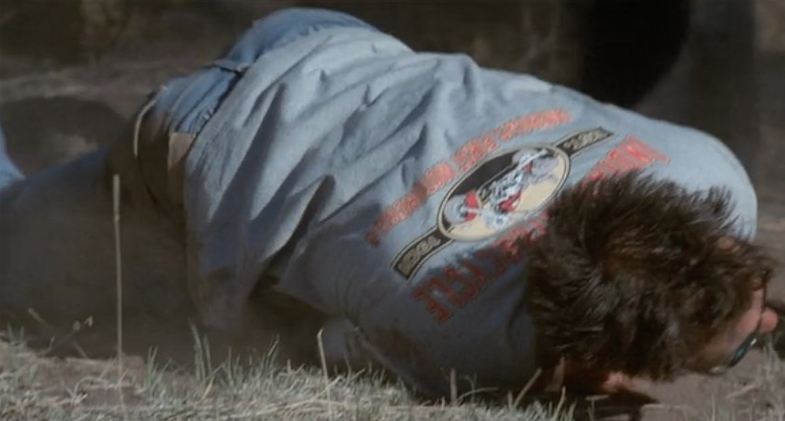;D










My favorite are underwear, shorts and jeans!!










Have you tried to write the helpdesk? Moderators can take care of this if you write them there.
Look at your newest uploaded torrent for a surprise! :hug2:
Who said anything about your comments being banned? I merely commented on your tendency to introject yourself into matters when you have no premise to do so. "Busybody" in your self-proclaimed profile description is a great depiction of this tendency.
Not quite sure I follow you. I don't 'introject'. And if nothing is banned I surely can comment on stuff in the forums. I don't need a staff member to tell me I'm being a bad boy… I don't think so, at least.
As for the 'self-proclaimed' 'Busybody' that was suggested,in fun, by a moderator who has my greatest respect. And I thought it would be a bit of fun to go along...'fun', you know the thing people have when they aren't being self-important.
Anyway it is good to know that the site is running so well that 'Super Moderators'. can join in (introject) the 'fun' as well, shame they don't know the history
Oh cannonmc, you know your history with the site and specifically me. Don't be so sensitive if there is commentary on your commentary. After all, we all like to participate in the forums, yes? :hug2:
Ah yes. . . our notorious busybody again advocating his purview into admin matters. :blink:
So comments about the site are now banned, are they?
Who said anything about your comments being banned? I merely commented on your tendency to introject yourself into matters when you have no premise to do so. "Busybody" in your self-proclaimed profile description is a great depiction of this tendency.
Well, that's reassuring. Are we to believe every take down request complies with those criteria? Perhaps you could publish some of the requests so we could satisfy ourselves that it is true.
Ah yes. . . our notorious busybody again advocating his purview into admin matters. :blink:
Example 2 is not considered a duplicate from the perspective that breaking down a set or collection allows other users to post more descriptive information and images for individual files. This can add to site search capabilities and assist other users in downloading only parts they want to download (although, obviously deselecting files in a torrent client could accomplish the same; but many users who not tech savy).
What are your favorite tube sites and what specifically do you like about them?
:cheers: :cheers::cheers: (I'll be giving out 2 - 5 GB upload credits for thoughtful replies. . . ) :cheers: :cheers: :cheers:
I see no way for a user from our website to gain access to your computer. Passing PMs back and forth will not divulge any information necessary to hack into your computer or IP.
What is more likely to be a source of access to your computer is visiting unknown sites or opening/clicking on e-mail or websites that allows implantation of a virus, trojan, worm or other executable program. This may have occurred PRIOR to your interaction with another GT.ru user. They can sit in your computer and become activated later, depending on what type of intrusion tool was utilized.
Do you use anti-viral/anti-intrusion program to protect you from these more common sources of intrusion. If not, install one and run it through your system, it may identify the source of intrusion that you refer to as having been hacked.
After researching the studio, I also cannot find any reports that would indicate Man's Best was ever affiliated with underage actors. I did find several well-known retail sites that are selling films from the studio as well. So, I'm uncertain how or why the studio landed on the other site's ban list.
Soon, all of your wishes may come true. . . . . :cheers:
If staff have reported you to be "not connected" or you notice it after running a connectivity test on your torrent client, there is a problem with the firewall. Either an exemption for the torrent client needs to be made or to use a port forward to solve this issue.
Patent Allows Watermarking of Already Encrypted Movies
Torrent Freak
By Andy
August 31, 2014
The company behind the movie watermarking system known as Cinavia has been awarded a new anti-piracy patent. Among other things, the Verance invention seeks to track digital media as it's being distributed by adding identifying watermarks to encrypted content, without having to decrypt it first.
While the name Verance might not be particularly well known, the company’s anti-piracy technology is present in millions of DVD and Blu-ray players and the media they play.
Every licensed Blu-ray playback device since 2012 has supported the technology which is designed to limit the usefulness of pirated content. Illicit copies of movies protected by Cinavia work at first, but after a few minutes playback is halted and replaced by a warning notice.
This is achieved by a complex watermarking system that not only protects retail media but also illicit recordings of first-run movies. Now Verance has been awarded a patent for a new watermarking system with fresh aims in mind.
The patent, ‘Watermarking in an encrypted domain’, begins with a description of how encryption can protect multimedia content from piracy during storage or while being transported from one location to another.
“The encrypted content may be securely broadcast over the air, through the Internet, over cable networks, over wireless networks, distributed via storage media, or disseminated through other means with little concern about piracy of the content,” Verance begins.
Levels of security vary, Verance explains, depending on the strength of encryption algorithms and encryption key management. However, at some point content needs to be decrypted in order for it to be processed or consumed, and at this point it is vulnerable to piracy and distribution.
“This is particularly true for multimedia content that must inevitably be converted to audio and/or visual signals (e.g., analog format) in order to reach an audience,” Verance explain.
While the company notes that at this stage content is vulnerable to copying, solutions are available to help protect against what it describes as the “analog hole”. As the creator of Cinavia, it’s no surprise Verance promotes watermarking.
“Digital watermarking is typically referred to as the insertion of auxiliary information bits into a host signal without producing perceptible artifacts,” Verance explains.
In other words, content watermarked effectively will carry such marks regardless of further distribution, copying techniques, or deliberate attacks designed to remove them. Cinavia is one such example, the company notes.
However, Verance admits that watermarking has limitations. In a supply chain, for example, the need to watermark already encrypted content can trigger time-intensive operations. For this, the company says it has a solution.
Verance has come up with a system with the ability to insert watermarks into content that has already been compressed and encrypted, without the need for decryption, decompression, or subsequent re-compression and re-encryption.
In terms of an application, Verance describes an example workflow in which movie content could be watermarked and then encrypted in order to protect it during distribution. The system has the ability to further watermark encrypted content as it passes through various supply chain stages and locations without compromising its security.
“In a forensic tracking application, a digital movie, after appropriate post production processing, may be encrypted at the movie studio or post production house, and sent out for distribution to movie theaters, to on-line retailers, or directly to the consumer,” Verance explains.
“In such applications, it is often desired to insert forensic or transactional watermarks into the movie content to identify each entity or node in the distribution channel, including the purchasers of the content, the various distributors of the content, the presentation venue and the time/date/location of each presentation or purchase.”
Verance believes that being able to track distribution points, sales locations such as movie theaters or stores, and even end users will be a big plus to adopters. Those up to the complex analysis can see how the company intends to work its magic by viewing its extremely technical and lengthy patent.
The Next-Generation Copyright Monopoly Wars Will Be Much Worse
Torrent Freak
By Rick Falkvinge
August 31, 2014
We've been manufacturing without a license in our homes for 30 years now. It's about to go physical. Maybe that will wake legislators up to the bigger picture. If not, we're in for something much worse.
We’ve been manufacturing our own copies of knowledge and culture without a license for quite some time now, a practice known first as mixtaping and then as file-sharing.
Home mass manufacturing of copies of culture and knowledge started some time in the 1980s with the Cassette Tape, the first widely available self-contained unit capable of recording music. It made the entire copyright industry go up in arms and demand “compensation” for activities that were not covered by their manufacturing monopoly, which is why we now pay protection money to the copyright industry in many countries for everything from cellphones to games consoles.
The same industry demanded harsh penalties – criminal penalties – for those who manufactured copies at home without a license rather than buying the expensive premade copies. Over the next three decades, such criminal penalties gradually crept into law, mostly because no politician thinks the issue is important enough to defy anybody on.
A couple of key patent monopolies on 3D printing are expiring as we speak, making next-generation 3D printing much, much higher quality. 3D printers such as this one are now appearing on Kickstarter, “printers” (more like fabs) that use laser sintering and similar technologies instead of layered melt deposit.
We’re now somewhere in the 1980s-equivalent of the next generation of copyright monopoly wars, which is about to spread to physical objects. The copyright industry is bad – downright atrociously cynically evil, sometimes – but nobody in the legislature gives them much thought. Wait until this conflict spreads outside the copyright industry, spreads to pretty much every manufacturing industry.
People are about to be sued out of their homes for making their own slippers instead of buying a pair.
If you think that sounds preposterous, that’s exactly what has been going on in the copyright monopoly wars so far, with people manufacturing their own copies of culture and knowledge instead of buying ready-made copies. There’s no legal difference to manufacturing a pair of slippers without having a license for it.
To be fair, a pair of slippers may be covered by more monopolies than just the copyright monopoly (the drawing) – it may be covered by a utility patent monopoly, a design patent monopoly, possibly a geographic indication if it’s some weird type of slipper, and many more arcane and archaic types of monopolies. Of course, people in general can’t tell the difference between a “utility patent”, a “design patent”, a “copyright duplication right”, a “copyright broadcast right”, a “related right”, and so on. To most people, it’s all just “the copyright monopoly” in broad strokes.
Therefore, it’s irrelevant to most people whether the person who gets sued out of their home for fabbing their own slippers from a drawing they found is technically found guilty of infringing the copyright monopoly (maybe) or a design patent (possibly). To 95% or more, it’s just “more copyright monopoly bullshit”. And you know what? Maybe that’s good.
The next generation of wars over knowledge, culture, drawings, information, and data is just around the corner, and it’s going to get much uglier with more stakes involved on all sides. We have gotten people elected to parliaments (and stayed there) on the conflict just as it stands now. As this divide deepens, and nothing suggests it won’t, then people will start to pay more attention.
And maybe, just maybe, that will be the beginning of the end of these immoral and deeply unjust monopolies known as copyrights and patents.
The uploader of these two torrents usually finishes his initial seeding, so trust it will occur in time. We'll keep monitoring.
The "reseed" button is greyed out because it has not been seeded yet. How the button works is by sending a request to everyone that has ever downloaded the file and still has an active account. So, if an initial seeding has not been completed yet, there is no one to send a request.
Here is another good example of these invisible watermarks –-- even with photographs!! Membership site users BEWARE!!! (if you use real personal information, a non-VPN IP address and name-registered credit card)
Gay Porn Site Sues User, Outs Him in the Process
April 28, 2014 - (re-tox.com)
Subscribe to a gay porn site? Your private information isn’t safe. In fact, it could end up in public records. Name, address, even the site you’re subscribed to.
At least, that’s what happened to one poor guy in Pennsylvania.
We won’t name him because that just feels wrong, but the photographer behind FITYOUNGMEN.com had no problem calling out one of his users in public court records, filing a lawsuit against the man for allegedly downloading images off the website and cross-posting them on Tumblr and Flickr.
Zone 8 Media — a London-based gay erotica company helmed by photographer Nick Baker — filed the lawsuit for copyright infringement, alleging the defendant-who-shall-not-be-named stole 200 or more photos and then cross-posted them on his private social media accounts.
Baker claims each photo contains an invisible watermark that allowed him to trace the images back to this particular user, and rather than settle the issue privately — or even just forgetting about the whole thing — Baker filed suit. It is now public record.
We don’t need to point out why this was a dangerous PR move for Baker (who wants to subscribe to a porn website where a private information leak is even possible?) but it raises an interesting question: does the punishment fit the crime?
Within the realm of porn — especially gay porn — it feels as though the need for privacy among consumers ought to be greater. What if the user’s in the closet? What if he’s married with a family? Is it worth destroying his life over a bunch of photos? Had this user stolen images from some boring political blog and cross-posted them, his privacy would obviously be less of a concern.
A lawsuit like this sets a scary precedent and is sure to drive consumers away from pay sites.